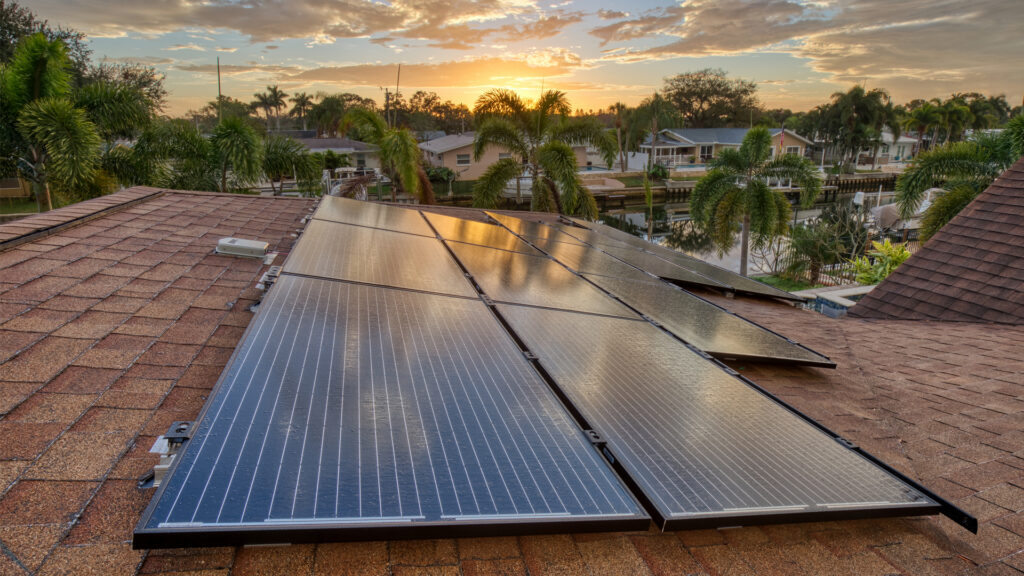By Mia McCormick, Environment Florida
We call it the “Sunshine State” for a reason. With an average of 240 days of sunshine a year, solar power seems like a good investment in Florida. A new report shows that many residents and small-scale commercial businesses think so, too.

Sustained growth among residents and the small-scale commercial sector is promising in our state. Getting energy straight from your own roof is empowering. Even though you don’t end up with a zero-dollar electric bill, the savings are significant and you are leaving a greener footprint for the generations to come.
Environment Florida’s Research and Policy Center tracked the dramatic increase in rooftop solar power over the last decade, state by state. Florida ranks 6th in the nation for growth in small-scale solar power generation over that time period. Residential solar grew by a staggering 1,106% over the last five years.
Bolstered by federal incentives, no state sales tax on equipment purchases, a 100% property tax exemption for residential renewable energy property and some local grant programs, rooftop solar continues to grow rapidly in the Sunshine State. At the beginning of 2023, Florida outpaced all other states in residential installations.
Despite increasing popularity, it’s still an uphill battle for Florida citizens to get access to all the available incentives for renewable energy. And it’s a fight to keep the ones we have.
In 2022, the Florida Legislature passed a bill backed by utility companies that aimed to reduce net metering. Net metering requires a utility to give you a 1:1 rate credit for every extra kWh of energy generated that is sent back to the grid from your solar panels. Those credits can be used to offset costs in times when sunshine isn’t as abundant or it’s paid out at the end of the year. The bill was thankfully vetoed by Gov. Ron DeSantis.

In 2023, Florida failed to apply for federal funds that help low-income families get solar panels, by covering the up-front equipment costs. And our state has yet to set a renewable portfolio standard. This is an incentive designed to encourage solar adoption by requiring utilities to source a certain percentage of the electricity they generate or sell from renewable sources. If a specific goal is set that utilities are required to meet, then adoption of renewable sources becomes a priority.
The shining light, pun intended, lies in Florida’s potential. The Rooftop Solar on the Rise report finds that Florida has only tapped about 2% of its rooftop solar potential, so the opportunity to move away from fossil fuels and generate clean renewable energy from the sun is huge. If Floridians vote for leaders who make renewable energy a priority, by applying for all federal resources and implementing a renewable portfolio standard, our state could easily lead the nation in solar generation.
Creating a sustainable and cleaner future for the next generation of Floridians should be our energy priority. Just the thought of it kind of warms you, from the inside.
Mia McCormick is an advocate with Environment Florida. This piece was originally published at https://environmentamerica.org/florida/articles/rooftop-solar-is-on-the-rise-in-florida/.
If you are interested in submitting an opinion piece to The Invading Sea, email Editor Nathan Crabbe at ncrabbe@fau.edu. Sign up for The Invading Sea newsletter by visiting here.



